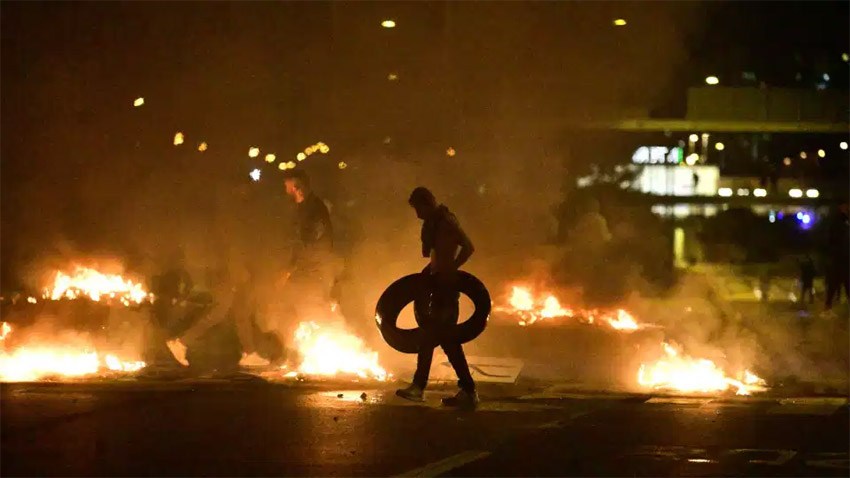The public burning of the Koran last Friday in an immigration neighbourhood in Malmö, Sweden, sparked violent protests in the city. The European Commission has condemned the incident.
A number of persons have been apprehended by the Swedish police for incitement against ethnic groups, based on films circulating on social media, and a preliminary investigation has been launched. Police officers were present when the incidents started at a square in Malmö (28 August), where a book of the Koran was abused and kicked around but they did not interfere.
Later on, when a copy of the Koran was burned publicly in Rosengården, an immigration neighbourhood in Malmö, there was no police present. Police spokesperson Calle Persson confirmed that the same persons were involved in the two incidents that resulted in riots in the centre of Malmö in the evening and in the night.
He told The Brussels Times that it has not been legally examined whether burning a book which is considered as holy by a community is a crime according to Swedish law but added that it depended on the context. The preliminary examination, if it results in a trial, could therefore set a precedent in Sweden.
The spokespersons office of the Swedish ministry of justice did not respond to a request for comment from The Brussels Times.
The whole affair started with an application by a far-right Danish politician to demonstrate outside a mosque in Rosengården. His request was denied and even a two-year travel ban to enter Sweden was issued against him. Acting police chief in Malmö, Mattias Sigfridsson, said that, “We must take into account the safety for both organisers, participants and citizens.”
However, a demonstration at another place in Malmö was not banned by the local police authority. In an email to people who protested against the hateful demonstration, the police replied that it is “allowed, within the framework of freedom of expression, to arouse debate, express opinions, arouse feelings and even to express one-self in an offensive way.”
The police added that a permit for a gathering can only be denied if it is necessary with regard to public order, security at the gathering, traffic or to restrain an epidemic.
During the Middle Ages, books were burnt by the Church. Nazi Germany burned books that the regime did not like. The words of the German poet Heinrich Heine springs to mind: “Where they have burned books, they will end in burning human beings.”
Is there an EU directive that bans book burning to express hate against other people? A Commission spokesperson replied at the virtual press conference yesterday (31 August) that the Commission condemns all forms of racism, xenophobia and related intolerance as incompatible with the values on which the EU is founded.
He added that there are legal instruments in place and referred to the Framework Decision from 2008 on combating certain forms and expressions of racism and xenophobia by means of criminal law. Member states are supposed to apply national legislation based on the Framework Decision. However, some member states have not transposed the Framework Decision properly.
Article 1 of the Framework Decision states that each member state shall take the necessary measures to punish intentional conduct such as “publicly inciting to violence or hatred directed against a group of persons or a member of such a group defined by reference to race, colour, religion, descent or national or ethnic origin.”
M. Apelblat
The Brussels Times

